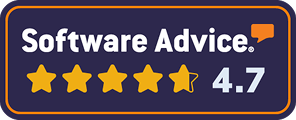مدقق دخل
قالب السيرة الذاتية
قم بإنشاء انطباع فوزي مع القالب المعتمد من جامعة هارفارد لمدقق الدخل.
مدقق دخل
قالب السيرة الذاتية
قم بإنشاء انطباع فوزي مع القالب المعتمد من جامعة هارفارد لمدقق الدخل.


انضم إلى الدورة
نموذج سيرة ذاتية لمدقق الدخل (٢٠٢٥)
كيفية تقديم معلومات الاتصال الخاصة بك
- الاسم الكامل.
- عنوان بريد إلكتروني احترافي (تجنب العناوين غير المهنية).
- اربط بمحفظتك أو LinkedIn أو ملفات التعريف ذات الصلة عبر الإنترنت (إن وجدت).
- رقم هاتف مع بريد صوتي احترافي.
كيفية كتابة ملخص سيرة ذاتية رائع لمدقق الدخل
مراجع دخل مخصص بأكثر من ٥ سنوات من الخبرة في التدقيق المالي وتحليل الإيرادات للشركات الفندقية متعددة الجنسيات. سجل حافل في تقليل الفروق بنسبة ٢٠٪ من خلال التسويات الحسابية الدقيقة وفحوصات الامتثال. يسعى للاستفادة من مهاراته التحليلية القوية وفهمه العميق للوائح المالية لدفع الدقة والنزاهة المالية في [اسم الشركة].
ما هي المهارات التي يجب إضافتها إلى سيرتك الذاتية كمدقق دخل
المهارات الفنية:
- التقارير المالية
- مايكروسوفت إكسل
- برامج المحاسبة (مثل QuickBooks و SAP)
- الوائح المالية
- منهجيات التدقيق
المهارات اللينة:
- الاهتمام بالتفاصيل
- التفكير التحليلي
- إدارة الوقت
- التواصل
- حل المشاكل
ما هي مؤشرات الأداء الرئيسية (KPIs) والأهداف والنتائج الرئيسية (OKRs) لمدقق الدخل، وكيف تناسب سيرتك الذاتية؟
مؤشرات الأداء الرئيسية (KPIs):
- دقة تقارير الدخل
- وقت إتمام التدقيق
- عدد الفروق المحددة والمحلة
OKRs (الأهداف والنتائج الرئيسية):
- ضمان الامتثال بنسبة ١٠٠٪ مع المعايير المالية
- تقليل الفروق في الدخل بنسبة ١٥٪ سنوياً
- إتمام جميع عمليات التدقيق في المواعيد النهائية المحددة
كيفية وصف تجربتك كمدقق دخل
ضع قائمة بتجربتك بترتيب زمني عكسي. ركز على الإنجازات والمسؤوليات والنتائج القابلة للقياس الكمي.
المثال الصحيح:
- إجراء عمليات تدقيق يومية لبيانات الدخل، وتحقيق دقة بنسبة ٩٨٪ في التقارير المالية.
- تطبيق استراتيجية تدقيق جديدة خفضت الفروق بنسبة ١٥٪، مما أسهم في توفير إجمالي تكاليف بقدره ٦٠٠٠٠ دولار سنوياً.
- التعاون مع الفرق متعددة الوظائف لضمان دمج سلس لعمليات التدقيق عبر الأقسام.
مثال خاطئ:
- التحقق من تقارير الدخل يومياً.
- تقليل الأخطاء.
- العمل مع الفريق.







